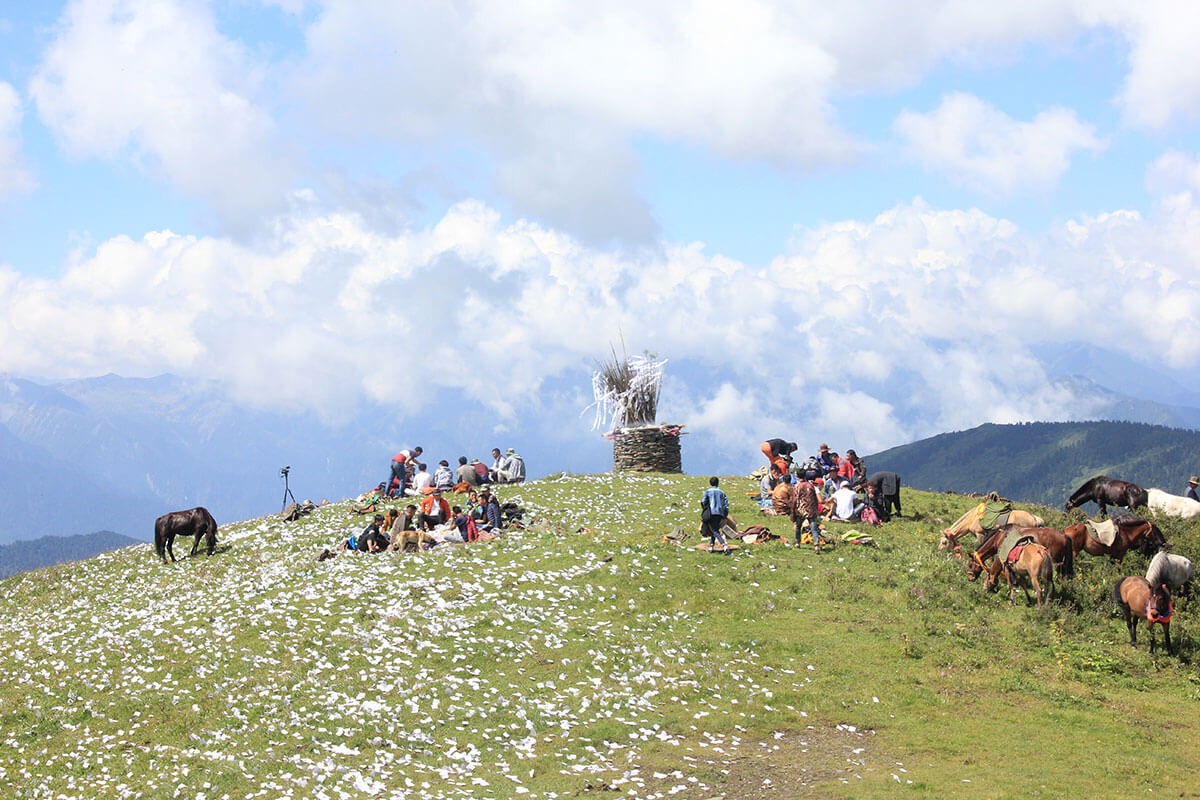When: November 12, 2019, 6–8:30 p.m.
Where: Smithsonian’s Sackler Gallery of Art, 1050 Independence Ave. SW (B1 Lobby)
The Smithsonian Center for Folklife and Cultural Heritage invites you to the launch of our trilingual online exhibition, Lag Zo: Making on the Tibetan Plateau. This exhibition—available in English, Mandarin Chinese, and Tibetan—provides a look into contemporary Tibetan life and the various ways individuals and communities are adapting to rapid transformation.
In partnership with the Smithsonian’s Freer|Sackler Galleries of Art, we will host a panel discussion among the exhibition’s contributing writers and producers and screen a selection of short films featured in the exhibition. The talk will be followed by Tibetan fare and time to explore the Freer|Sackler’s exhibition Encountering the Buddha: Art and Practice Across Asia.
Join us in celebrating the culmination of five years of community-driven research on the Tibetan Plateau.
About the Panelists
Shamo Thar is a PhD candidate at the University of Massachusetts at Amherst’s College of Education, concentrating her research on international higher education—specifically, college access, equity, and success for minority students. Previously, Shamo was a lecturer at Qinghai Normal University in Western China, where she taught courses related to education and development studies and led service-learning, community-driven projects with her students.
Namgyal (Nanjie) Tsepak is a PhD candidate in the Department of Anthropology at Cornell University. For his dissertation research, Namgyal works with the Stockbridge-Munsee Mohican Nation in northern Wisconsin to investigate the ways in which the Mohican people today reconnect with their ancestral homelands in the Northeast and explore how lands/places intersect with Native identity, sociocultural (re)production, and political belonging within the context of settler colonialism.
Khamokyit is a PhD candidate at the University of Virginia, focusing on the study of women in Tibetan Buddhist history and culture. Since 2017, she has served as cultural sustainability specialist at the Center for Folklife and Cultural Heritage and regularly contributes to literature on Tibetan culture.
James Deutsch is a curator at the Center for Folklife and Cultural Heritage, where he has helped plan and develop public programs on California, China, Hungary, Peace Corps, Apollo Theater, circus arts, NASA, Mekong River, U.S. Forest Service, World War II, Silk Road, and White House workers. In addition, he serves as an adjunct professor—teaching courses on American film history and folklore—in the American Studies Department at George Washington University.
Nathaniel Sims is a PhD candidate in the Department of Linguistics at the University of California, Santa Barbara. His research is focused on the languages of the greater Himalayan region. He is currently working collaboratively with speakers to document and describe the Yonghe variety of the Qiang language as part of an Endangered Languages Documentation Programme grant.
This event was made possible by Ferring Pharmaceutical’s generous support of the Cultural Sustainability program.


